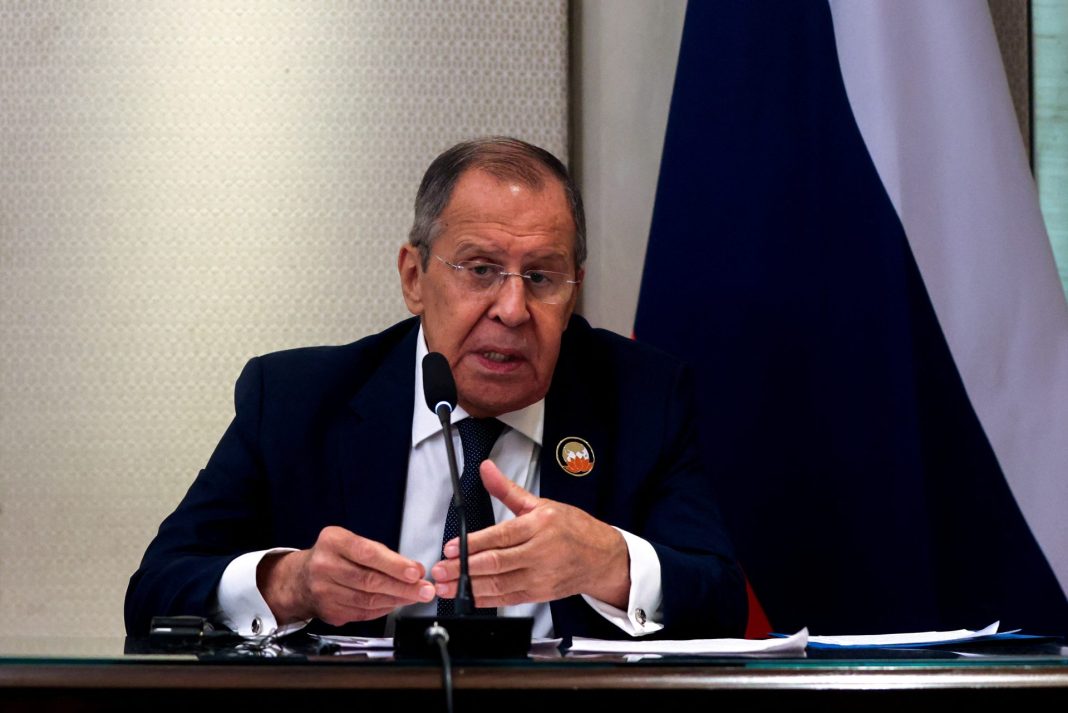“What the media write – I read different assessments [about the content of the G20 summit declaration] – [in particular] by the Financial Times, that this is the West’s failure …On the other hand, someone else, as far as I remember, [it was] Reuters [that] wrote that the West approved this piece of the joint declaration and passed it on as an ultimatum to the Russian Federation – that is ridiculous! Adults are spreading rumors that simply cannot be taken seriously,” Lavrov said indignantly.
Talking to reporters, the Russian ministers noted that the text of the declaration is available for reading.
“I think that the Western leaders you mentioned (UK Prime Minister Rishi Sunak and German Chancellor Olaf Scholz), if they consider everyone such naive people and explain to everyone that this text is a condemnation of Russia, then [ It should be noted that Russia is never mentioned there. Things are mentioned there that – I repeat it – reflect the persistent work of both the Indians and other like-minded people who did not allow the activities of the structure that was created to solve the problems of the world economy and world finance to turn into some kind of a politicized circle,” the top diplomat added.
Lavrov emphasized that Russia thanked India for “standing its watch with honor and making a significant contribution to creating the foundation for further work to democratize international economic and financial relations.”
The unified position of the Global South prevented the West from focusing the agenda of the G20 summit in New Delhi too much on Ukraine, Lavrov said.
“Largely thanks to the consolidated position of the Global South on protecting its legitimate interests, Western attempts to focus the agenda on Ukraine to the detriment of discussing the pressing issues the developing world is facing failed,” he told reporters.
According to Lavrov, as the G20 chair, India has for the first time in the history of the forum managed to consolidate representatives of the Global South. Apart from India, Russia’s BRICS allies, too, were particularly active, he added.
The G20 New Delhi Leaders’ Declaration mentions the Ukraine crisis only once “exclusively in the context of the need to resolve all ongoing conflicts globally” in a manner consistent with the purposes and principles of the UN Charter, Lavrov stressed.
Taking into consideration the new centers of global development, the West will be unable to maintain its dominance and hegemony, Lavrov stated.
“The West will not be able to maintain its hegemony, given that new centers of global development emerged objectively a long time ago and are gaining strength,” the minister said.
Lavrov added that in the summit’s final declaration, “a very healthy solution was found regarding the need to achieve a fair and equitable balance of interests.”
Lavrov stressed the importance of the West accurately assessing the outcomes of the G20 summit, taking into account the perspectives of developing countries.
“The most important thing at the end of this summit, given the rather serious, turning-point changes in the approaches of the developing world, is that the West draws the right conclusions from what we approved here and from what it saw in the actions of developing countries,” he continued.
The minister stated that the methods announced by the Indian side hosting the summit “mark the beginning of a very important trend – a transition from agreeing on some papers that are then not fulfilled, to the obligations will still have to be fulfilled.” And the developing countries at this summit were much more consolidated and persistent in promoting their fair demands,” he underlined.
At the same time, Lavrov stressed that “no one advocates that these demands be implemented to the detriment of the West.”
“We support the G20. It is, after all, a representative structure comprised of countries accounting for roughly 80% of the global economy, and everyone is interested in cooperating. In working honesty, seeking a balance of interests, and not promoting one’s own interests at the expense of the interests of others,” he underscored.
